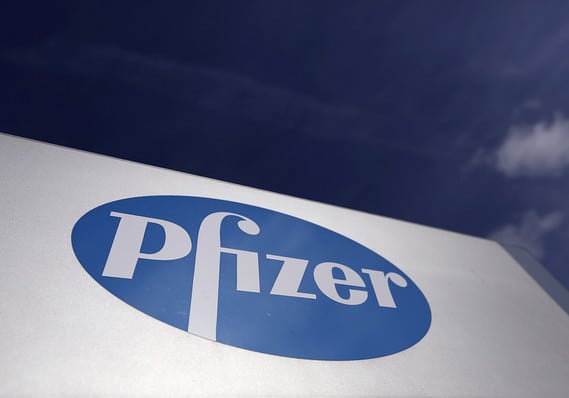
Two oncology successes for Pfizer
pharmafile | April 22, 2015 | News story | Research and Development, Sales and Marketing | Cancer, FDA, Inotuzumab ozogamicin, NSCLC, Pfizer, Xalkori, oncology
Pfizer has received two boosts in oncology as Xalkori gets a new breakthrough therapy designation from the FDA, and its leukaemia offering inotuzumab ozogamicin sees positive Phase III trial results.
Xalkori’s (crizotinib) breakthrough designation is for the treatment of ROS1-positive non-small cell lung cancer (NSCLC), a form of the disease found in approximately 1% of NSCLC patients. It is currently approved in the US for the treatment of patients with metastatic NSCLC whose tumours are anaplastic lymphoma kinase (ALK)-positive.(crizotinib)(crizotinib)
“We are excited that the FDA has granted Breakthrough Therapy designation for Xalkori as a potential treatment for patients with ROS1-positive NSCLC,” says Dr Mace Rothenberg, senior vice president of clinical development and medical affairs and chief medical officer for Pfizer Oncology.
“Xalkori pioneered precision medicine for ALK-positive metastatic NSCLC, and ROS1 represents a second molecular subgroup of NSCLC in which it has demonstrated a level of anti-tumour activity that can potentially make a real difference for patients.”
Xalkori has been a strong seller for the company, bringing in $438 million in sales in 2014. Pfizer says its growth helped offset other losses over the year. However, it has been rejected by NICE in the UK because of its high cost of £4,689 for a month’s treatment – and a proposed discount was not enough to change the UK watchdog’s mind.
The drug is being co-marketed with Merck KGaA, and the two companies are also working together to develop a combination therapy of Xalkori with Merck’s experimental PD-1 immunotherapy treatment pembrolizumab.
The firms are also teaming up on the anti-PD1 cancer immunotherapy avelumab. Pfizer signed a $3 billion deal with Merck to develop the drug in November 2014, and yesterday they announced they had begun Phase III trials.
There was more good news for Pfizer in oncology this week as it confirmed a Phase III study of its investigational compound inotuzumab ozogamicin met its primary endpoint of demonstrating higher remission rates than chemotherapy, in patients with CD22-positive acute lymphoblastic leukaemia (ALL).
The study’s other primary endpoint is overall survival, and Pfizer says it is “continuing the study to allow for the data on overall survival to mature”.
Inotuzumab ozogamicin previously met with disappointment in 2013 when a Phase III trial investigating its use in non-Hodgkin lymphoma (NHL) was abandoned early.
George Underwood
Related Content

FDA approves ImmunityBio’s Anktiva bladder cancer treatment
ImmunityBio has announced that the US Food and Drug Administration (FDA) has approved Anktiva (N-803, …

EC approves Pfizer’s Emblaveo for multidrug-resistant infection treatment
Pfizer has announced that the European Commission (EC) has granted marketing authorisation for Emblaveo (aztreonam-avibactam) …

Roche’s Alecensa approved by FDA as lung cancer treatment
Roche has announced that the US Food and Drug Administration (FDA) has approved Alecensa (alectinib) …






